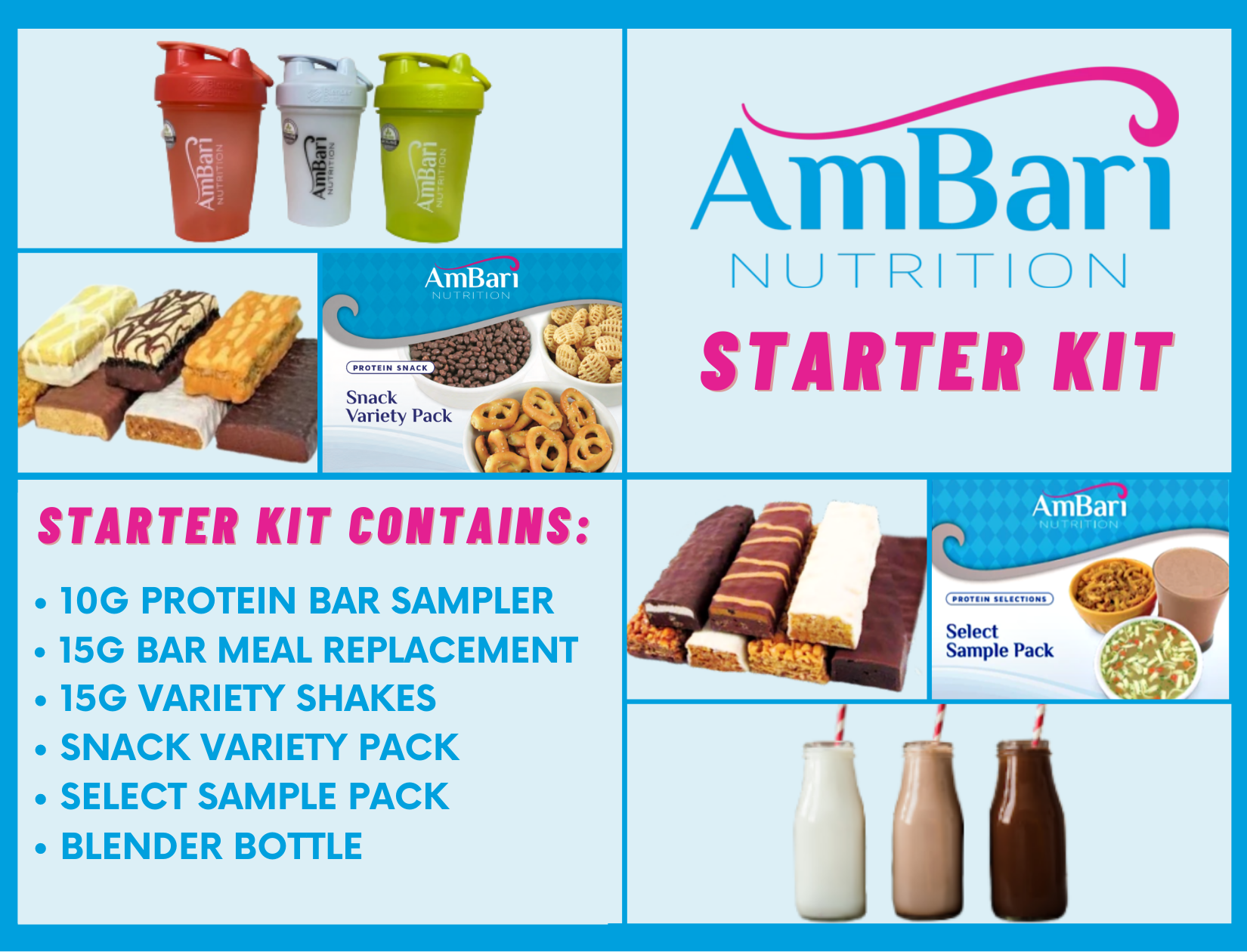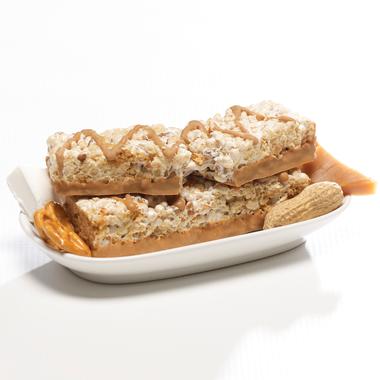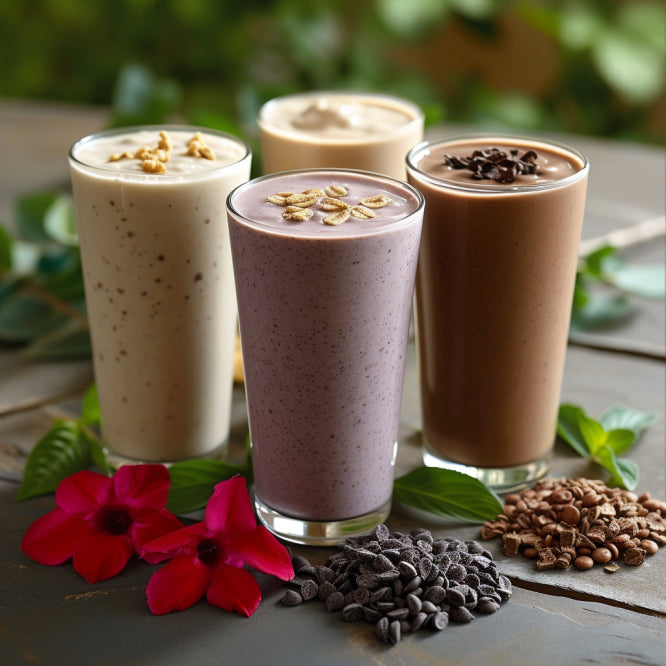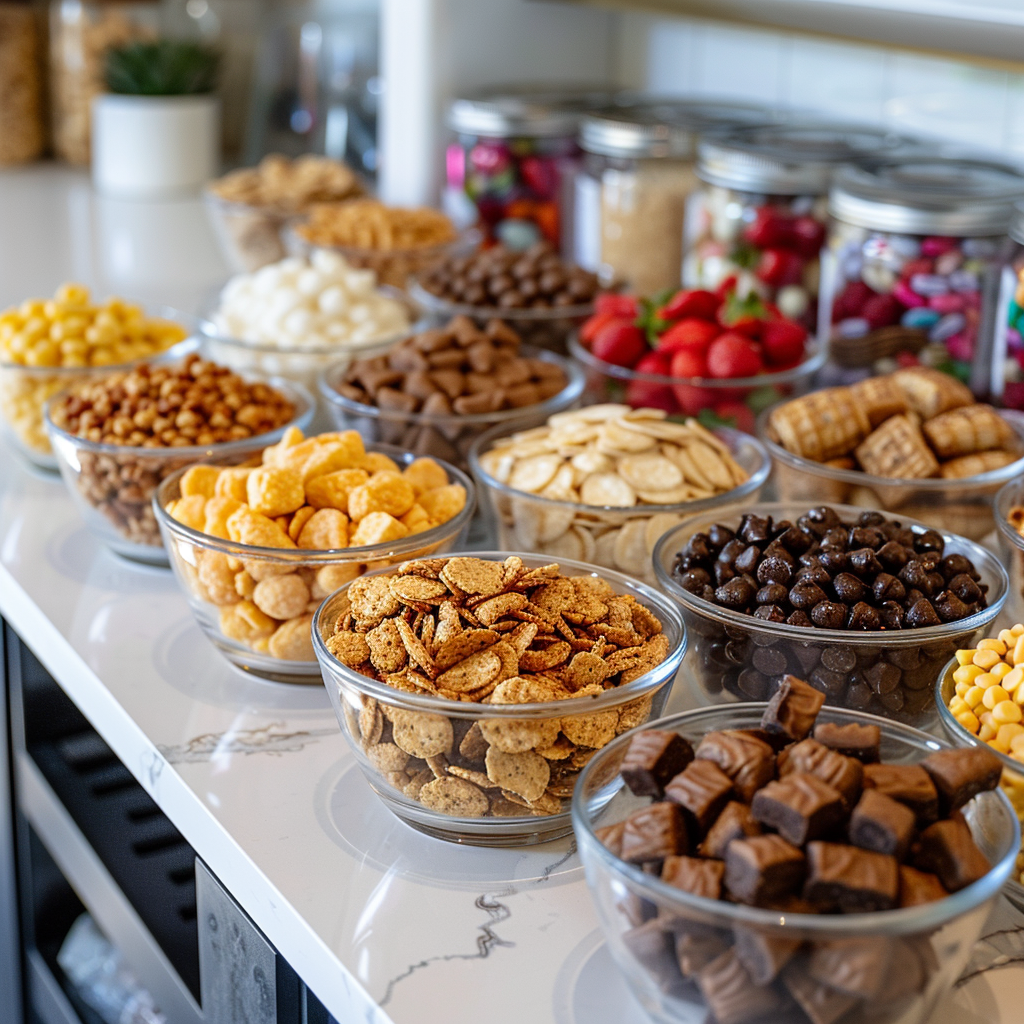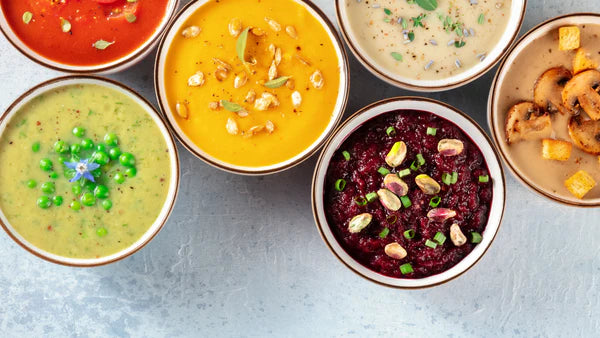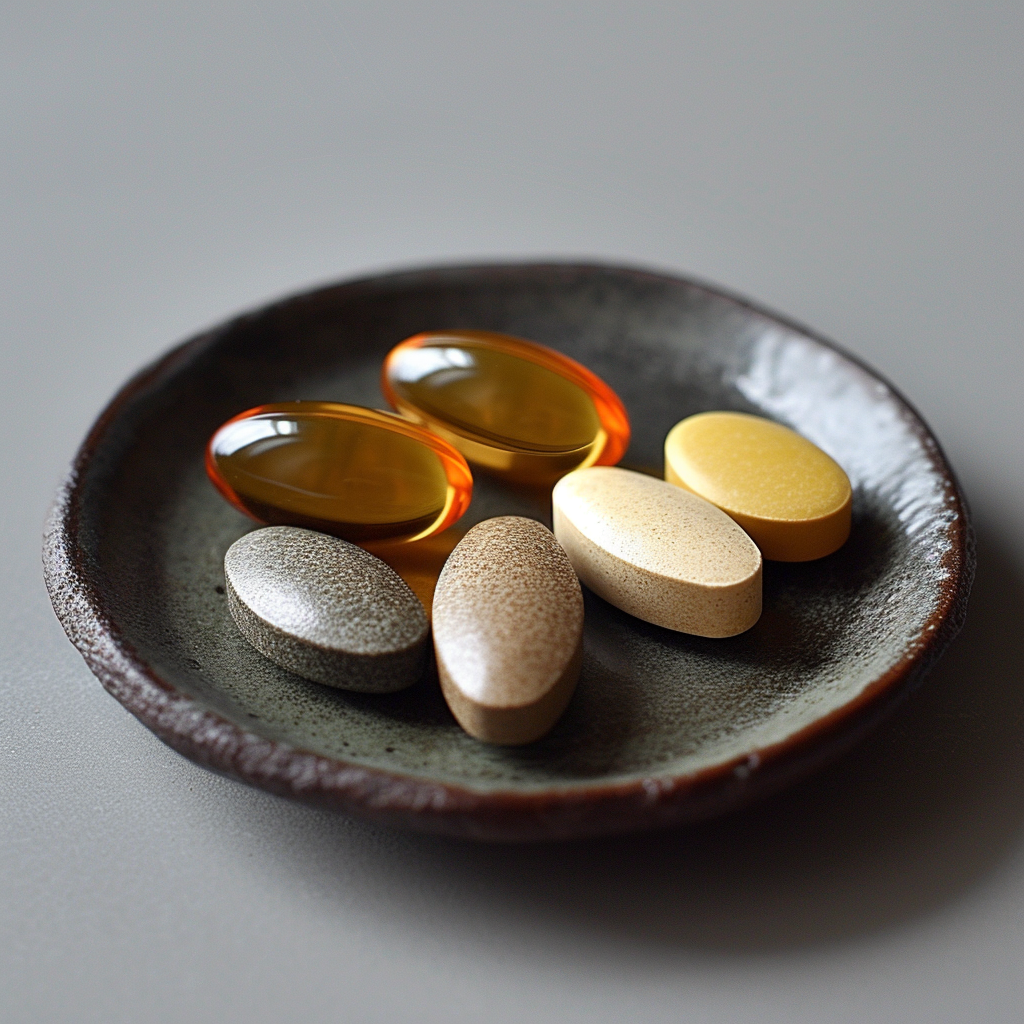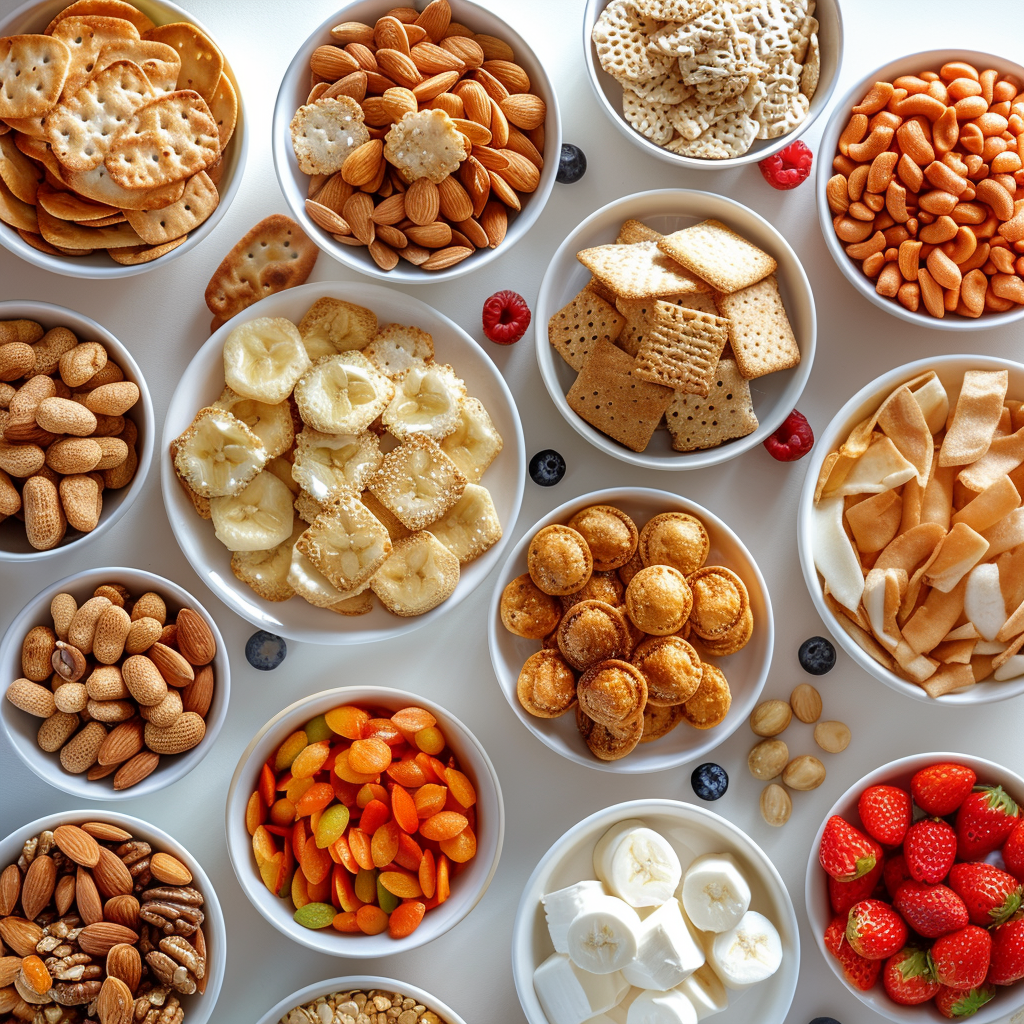Menu
Your cart is empty
Looks like you haven't added anything to your cart yet
Gastric Sleeve Diet (Foods To Eat & Foods to Avoid After Surgery)
Gastric sleeve surgery has become the most common weight loss surgery, with over 150,000 procedures performed in 2021 alone. This surgery reduces the stomach size by over 80% by surgically removing a large portion of the stomach.
However, the success of this potentially life-altering surgery depends heavily on making significant and permanent changes to diet and nutrition. Meticulously following the preoperative and postoperative dietary protocols is critical.
This article will provide an overview of the unique dietary changes involved with gastric sleeve surgery. We will examine the various diet phases and key nutritional goals. With a focused look at optimal food choices after surgery, patients can set themselves up for sustainable weight loss and improved health.

Gastric Sleeve Surgery vs Other Bariatric Procedures
Unlike gastric bypass or lap band, a gastric sleeve procedure removes a portion of the stomach. This restricts food intake significantly. Postoperative dietary choices for gastric sleeve patients differ from those of other surgeries. They must be meticulously planned.
Here's the statistics for bariatric surgeries performed over a ten year period:
| Year | Gastric Sleeve | RYGB | Lap Band | BPD-DS |
|---|---|---|---|---|
| 2021 | 152,866 | 56,527 | 1,121 | 5,525 |
| 2020 | 122,056 | 41,280 | 2,393 | 3,555 |
| 2019 | 152,413 | 45,744 | 2,375 | 2,272 |
| 2018 | 154,976 | 42,945 | 2,660 | 2,123 |
| 2017 | 135,401 | 40,574 | 6,318 | 1,588 |
| 2016 | 125,318 | 40,316 | 7,310 | 1,236 |
| 2015 | 105,448 | 45,276 | 11,172 | 1,176 |
| 2014 | 99,781 | 51,724 | 18,335 | 772 |
| 2013 | 75,359 | 61,218 | 25,060 | 1,790 |
| 2012 | 57,090 | 64,875 | 34,946 | 1,730 |
| 2011 | 28,124 | 57,986 | 55,932 | 1,422 |
Observations from the table:
- Gastric Sleeve surgeries have seen a substantial increase, peaking in recent years.
- Roux-en-Y Gastric Bypass (RYGB) has remained fairly steady but is less common compared to the sleeve.
- Lap Band surgeries have seen a significant decline.
- Biliopancreatic Diversion with Duodenal Switch (BPD-DS) is the least common and has minor fluctuations over the years.
Preoperative Gastric Sleeve Diet
In the weeks before surgery, adopting a liquid diet is critical. The main goals of this preoperative diet are:
-
Shrink the liver to allow for easier access during surgery and reduce complications. This is achieved through a diet of primarily high-protein, bariatric-friendly shakes and clear liquids.
-
Avoid foods and beverages that can lead to dehydration and complicate surgery. It's essential to restrict all alcohol, caffeine, and sugar.
-
In some cases, patients may eat soft foods like yogurt or mashed potatoes early in the preoperative diet before transitioning to all liquids.
Strictly following the prescribed preoperative diet will facilitate a quicker recovery. The liquid diet shrinks the liver, hydrates the body, and prepares the patient for the upcoming dramatic reduction in stomach capacity.
Other Recommended Guides:
Postoperative Gastric Sleeve Diet Phases

After undergoing a gastric sleeve procedure, your dietary regimen will shift through several stages, each carefully designed to facilitate healing and accustom your reduced stomach size to digesting food again. Unlike gastric bypass, the gastric sleeve leaves the digestive tract intact, which means fewer dietary restrictions in the long term. However, the initial postoperative diet is still quite rigorous.
Phase 1: Clear Liquid Diet
- Duration: 1 to 3 days post-surgery
- Foods Allowed: Clear broth, diluted fruit juices, herbal teas, and water
- Objective: Hydration and minimal strain on your new stomach
Phase 2: Liquid and Pureed Foods


- Duration: Up to 2 weeks post-surgery
- Foods Allowed: Protein shakes, smooth yogurt, non-fat milk, strained soups, blended foods like mashed bananas and pureed veggies
- Objective: Introduce proteins for tissue repair and prepare your stomach for more complex foods
Phase 3: Soft Foods
- Duration: 3 to 8 weeks post-surgery
- Foods Allowed: Soft-boiled eggs, cooked vegetables, and finely chopped meat
- Objective: Acclimate your stomach to a variety of textures and complexities
Phase 4: Solid Foods
- Duration: 9 weeks post-surgery and onward
- Foods Allowed: Most foods but major emphasis on protein and fiber
- Objective: Transition into a long-term balanced diet that is nutrient-rich but low in calories and sugar
Dietary Guidelines After Gastric Sleeve
After a gastric sleeve operation, the drastically reduced stomach size limits the quantity of food you can consume. Yet, your body still requires essential nutrients to heal and function optimally. This presents a unique set of nutritional challenges that patients must navigate.
Protein
- Importance: Protein plays a major role in tissue repair, muscle retention, and overall recovery.
- Sources: Lean meats, fish, eggs, and plant-based proteins like lentils and chickpeas. Meal replacement protein shakes are also a common supplement.
- Goal: Aim to meet the protein targets given by your healthcare provider, which can often be around 60 to 80 grams per day.
Hydration
- Importance: Proper hydration aids in digestion, helps to flush out toxins, and maintains bodily functions.
- Sources: Water is the best source. Herbal teas and diluted fruit juices can also contribute.
- Goal: Attempt to sip fluids throughout the day, avoiding large gulps that can overwhelm your reduced stomach.
Vitamins and Minerals

- Importance: Since food intake is restricted, obtaining enough vitamins and minerals becomes a challenge.
- Supplementation: Bariatric multivitamins are often recommended. Specific supplements like Vitamin B12, iron, and calcium may also be prescribed.
- Goal: The aim is to meet 100% of the daily recommended values, as advised by your healthcare provider.
Failure to meet these nutritional requirements can lead to complications like hair loss, fatigue, and even severe malnourishment. Therefore, consulting a registered dietitian for a tailored nutritional plan is often advised.
Food Choices After Surgery

The objective is to find foods that are nutrient-dense but gentle on your reduced stomach capacity.
Lean Proteins
Why: Lean proteins are easier to digest and help in tissue repair and muscle building.
Examples: Chicken breast, turkey, fish like salmon and tuna, shellfish, eggs, Greek yogurt, cottage cheese, tofu, beans, lentils, tempeh.
Tips: Opt for grilling, baking, broiling, or poaching proteins instead of frying to keep the fat content low. Remove skin from poultry.
Fruits and Vegetables
Why: While rich in nutrients, some fruits and veggies can cause gas and bloating.
Examples: Try cooked fruits like applesauce or canned peaches and softened veggies like well-cooked carrots, winter squash, peeled cucumbers, and canned green beans.
Caution: Introduce raw crunchy vegetables like celery or snap peas slowly in small quantities. Avoid cruciferous veggies early on.
Foods to Avoid After Gastric Sleeve Surgery
High-Sugar Foods

- Examples: Steer clear of obvious culprits like candies, desserts, and sodas, but also watch out for hidden sugars in pre-packaged meals and sauces.
- Risks: Such foods can precipitate dumping syndrome, which comes with symptoms like nausea and diarrhea. They also contribute to quick weight gain.
High-Fat Foods
- Examples: Apart from fried items and fast food, avoid fatty meats, butter, and foods cooked in large amounts of oil.
- Risks: These foods are rich in calories and can cause discomfort due to your reduced stomach size. Weight gain is also a concern.
Refined Carbohydrates
- Examples: Items such as white bread, white rice, and pasta.
- Risks: These can quickly fill your smaller stomach while offering minimal nutritional benefits. They're calorie-dense but nutrient-poor.
Carbonated Drinks
- Examples: Soda, sparkling water, and fizzy alcoholic beverages.
- Risks: Carbonation can cause discomfort and bloating due to the limited stomach space.
Alcohol
- Risks: High in empty calories and could interact negatively with postoperative medications.
Fibrous Vegetables and Legumes
- Examples: Corn, celery, and certain types of beans.
- Risks: These foods can be harder to digest and may cause discomfort or blockages in the narrower gastric sleeve stomach.
Tough Meats
- Examples: Steak, pork chops, or any meat that isn't tender.
- Risks: These can be more difficult for your modified stomach to process, causing discomfort and potentially leading to vomiting.
Seeds and Skins
- Examples: Tomato skins, fruit seeds, and certain whole grains.
- Risks: These small, hard particles could get stuck and irritate your new, smaller stomach.
Because the gastric sleeve involves actually removing part of the stomach rather than just constricting it, these particular recommendations take into account the unique digestive capabilities—and limitations—of this modified organ. Being aware of these food types to avoid is crucial in dodging complications and ensuring a smooth recovery. Always consult your healthcare provider for personalized dietary guidelines.
Gastric Sleeve Food Recipes
Finding delicious and satisfying recipes that fit the postoperative diet can be challenging. Refer to resources like bariatric cookbooks or websites with gastric sleeve-friendly recipes for ideas.
Conclusion
The long-term success of gastric sleeve surgery depends heavily on making permanent lifestyle changes, especially to diet and nutrition. Patients must diligently adhere to the preoperative and postoperative diet protocols.
Although the diet stages are temporary, smart food choices like lean proteins, fruits, vegetables, and high-fiber foods should become a lifelong habit. Proper hydration and vitamin supplementation are also essential.
Writer: Allison Allison is a seasoned nutritionist and writer with over 15 years in health and weight management. She's authored journals on medical weight loss and bariatric medicine, and has specialized in bariatric foods. |
Reviewed By: Dr. K. Huffman Dr. Kevin D. Huffman, D.O., is a board-certified bariatric physician renowned for his expertise in treating obesity. With over 10,000 patients and a reputation as a national leader in bariatric medicine, he has trained hundreds of healthcare providers. Dr. Huffman develops protocols and training materials sought after by medical societies, pharmaceutical companies, patients, and hospitals. |
- Choosing a selection results in a full page refresh.


